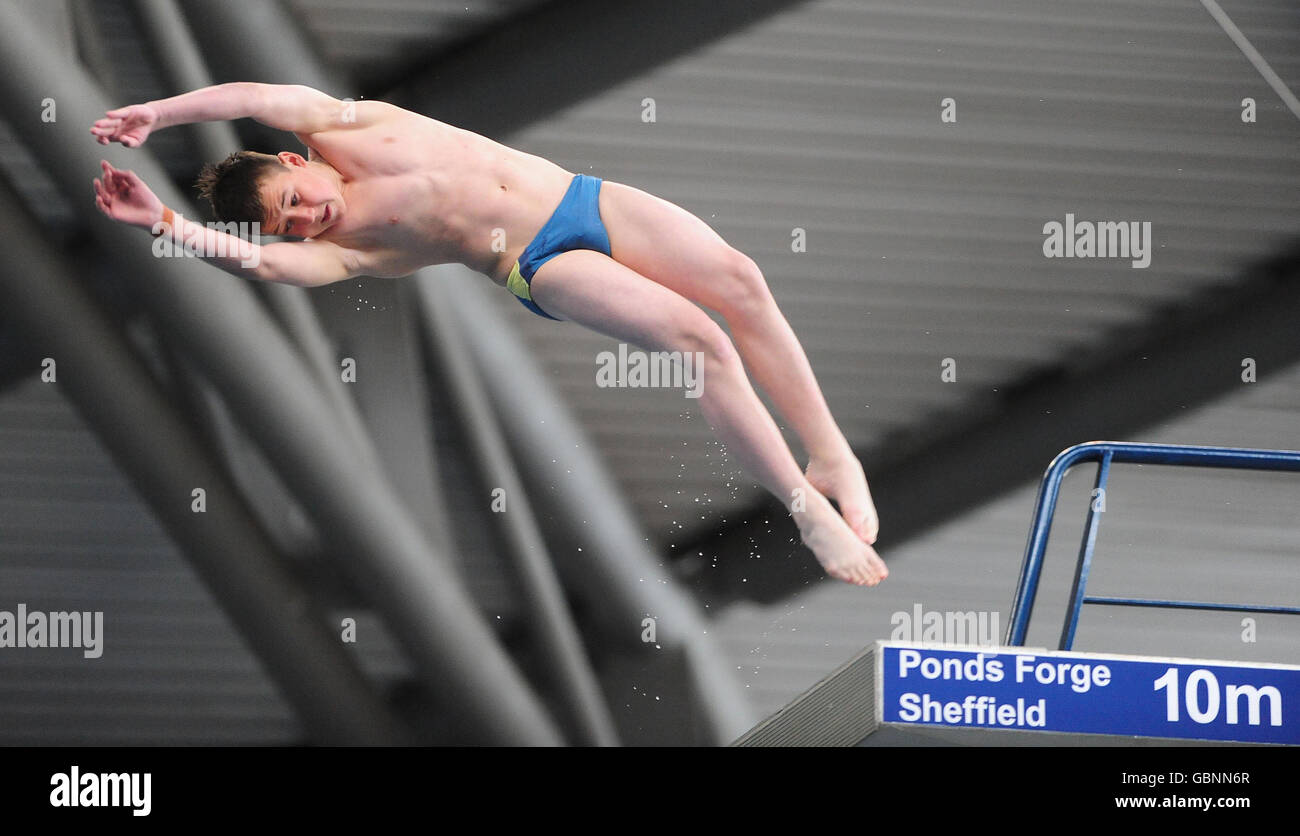“The Forge of Champions: A Deep Dive into Germany’s Elite Football Academies
Related Articles The Forge of Champions: A Deep Dive into Germany’s Elite Football Academies
The Forge of Champions: A Deep Dive into Germany’s Elite Football Academies

Germany has long been revered as a footballing powerhouse, a nation that consistently produces world-class talent. This reputation is not built on luck; it’s the result of a meticulously crafted system that prioritizes youth development. At the heart of this system lie the country’s elite football academies, institutions that nurture young players, instilling in them not only technical skills but also tactical understanding, mental fortitude, and a deep love for the game.
This article will delve into some of the best football academies in Germany, examining their philosophies, facilities, success stories, and the unique elements that set them apart.
The Foundation of Excellence: The German Football Association (DFB)
Before exploring individual academies, it’s crucial to understand the role of the DFB in shaping youth development. Following disappointing results in the late 1990s and early 2000s, the DFB implemented a comprehensive overhaul of its youth system. Key initiatives included:
- Talent Promotion Program: Establishing a nationwide network of talent scouts and training centers to identify and develop promising players from a young age.
- Academy Certification: Implementing a rigorous certification process for professional club academies, ensuring they meet specific standards regarding coaching quality, facilities, and educational support.
- Emphasis on Education: Recognizing that football is not the only path to success, the DFB promotes a holistic approach, ensuring that young players receive a quality education alongside their football training.
- Standardized Curriculum: Developing a standardized curriculum that emphasizes fundamental skills, tactical awareness, and age-appropriate training methods.
These initiatives have transformed German youth football, creating a more structured, professional, and effective system for developing talent.
The Giants of Youth Development: Premier Academies
Several academies consistently rank among the best in Germany, producing a steady stream of players who go on to star for club and country.

FC Bayern Munich: As Germany’s most successful club, FC Bayern Munich boasts one of the nation’s most prestigious academies, the FC Bayern Campus.
- Philosophy: Bayern’s academy emphasizes a possession-based, attacking style of play, mirroring the club’s first-team philosophy. They focus on developing technically gifted players with strong tactical awareness and a winning mentality.
- Facilities: The FC Bayern Campus is a state-of-the-art facility that includes multiple training pitches, a performance center, a boarding school, and a school.
- Notable Graduates: David Alaba, Thomas Müller, Philipp Lahm, Bastian Schweinsteiger, Toni Kroos, Mats Hummels.
- Unique Elements: Bayern’s global scouting network allows them to attract top talent from around the world. Their close integration with the first team provides young players with invaluable opportunities to train with and learn from established stars.
-
Borussia Dortmund: Known for their exciting, attacking football, Borussia Dortmund’s academy is renowned for developing young players with flair and creativity.
- Philosophy: Dortmund’s academy emphasizes a high-pressing, counter-attacking style of play. They focus on developing players with pace, skill, and a strong work ethic.
- Facilities: Dortmund’s academy features multiple training pitches, a performance center, and a boarding school.
- Notable Graduates: Mario Götze, Marco Reus, Christian Pulisic, Nuri Şahin, Marcel Schmelzer, Youssoufa Moukoko.
- Unique Elements: Dortmund’s academy has a strong focus on individual development, providing each player with a personalized training plan. They also emphasize the importance of teamwork and leadership skills.
-
VfB Stuttgart: VfB Stuttgart’s academy, known as the VfB Stuttgart Jugend, has a long and proud history of producing top-class players.
- Philosophy: Stuttgart’s academy emphasizes a balanced approach, focusing on both technical skills and tactical understanding. They aim to develop well-rounded players who are comfortable in multiple positions.
- Facilities: Stuttgart’s academy features multiple training pitches, a performance center, and a boarding school.
- Notable Graduates: Sami Khedira, Mario Gomez, Timo Werner, Joshua Kimmich, Serge Gnabry, Bernd Leno.
- Unique Elements: Stuttgart’s academy has a strong focus on regional talent, recruiting players from the surrounding area. They also emphasize the importance of education and personal development.
-
FC Schalke 04: FC Schalke 04’s academy, the Knappenschmiede (Miners’ Forge), is one of the most respected in Germany, known for its focus on discipline and hard work.
- Philosophy: Schalke’s academy emphasizes a disciplined, organized style of play. They focus on developing players with strong defensive skills, tactical awareness, and a relentless work ethic.
- Facilities: Schalke’s academy features multiple training pitches, a performance center, and a boarding school.
- Notable Graduates: Manuel Neuer, Mesut Özil, Julian Draxler, Leroy Sané, Joel Matip, Benedikt Höwedes.
- Unique Elements: Schalke’s academy has a strong connection to the local community, drawing inspiration from the region’s industrial heritage. They also emphasize the importance of discipline and teamwork.
-
Bayer Leverkusen: Bayer Leverkusen’s academy is known for its innovative training methods and its focus on developing technically gifted players.
- Philosophy: Leverkusen’s academy emphasizes a creative, attacking style of play. They focus on developing players with exceptional technical skills, vision, and the ability to create chances.
- Facilities: Leverkusen’s academy features multiple training pitches, a performance center, and a boarding school.
- Notable Graduates: Kai Havertz, Julian Brandt, Benjamin Henrichs, Levin Öztunali, Jonathan Tah.
- Unique Elements: Leverkusen’s academy has a strong focus on sports science, using data analysis and technology to optimize player development.
Beyond the Big Names: Other Notable Academies
While the academies of Bayern Munich, Dortmund, Stuttgart, Schalke, and Leverkusen often receive the most attention, there are many other excellent academies in Germany that deserve recognition. These include:
- RB Leipzig: Known for its modern facilities and data-driven approach to player development.
- TSG 1899 Hoffenheim: Renowned for its innovative coaching methods and its focus on individual development.
- Hertha BSC: A Berlin-based academy with a strong focus on regional talent and community engagement.
- Eintracht Frankfurt: Known for its passionate fan base and its commitment to developing players with a strong work ethic.
- Hamburger SV: A historic club with a long tradition of developing young players.
The Academy Experience: More Than Just Football
Life in a German football academy is demanding, requiring a significant commitment from young players. However, it’s also a rewarding experience that provides them with invaluable opportunities for personal and professional growth.
- Intensive Training: Academy players train multiple times a week, focusing on technical skills, tactical understanding, and physical conditioning.
- Competitive Matches: Players compete in regular matches against other academies, providing them with valuable experience in high-pressure situations.
- Educational Support: Academies provide educational support to ensure that players maintain their academic progress.
- Personal Development: Academies offer programs to help players develop their leadership skills, communication skills, and emotional intelligence.
- Mentorship: Players are often assigned mentors who provide guidance and support.
Challenges and Future Trends
Despite its success, the German youth development system faces several challenges:
- Competition from Other Leagues: English Premier League and other leagues are increasingly scouting and recruiting young German players.
- Maintaining Standards: Ensuring that all academies meet the required standards of quality and professionalism.
- Adapting to Changing Trends: Staying ahead of the curve in terms of coaching methods, technology, and sports science.
Looking to the future, several trends are likely to shape the German youth development landscape:
- Increased Use of Technology: The use of data analytics, wearable technology, and virtual reality to enhance training and player development.
- Greater Focus on Individualization: Tailoring training programs to meet the specific needs and goals of each player.
- Enhanced Mental Skills Training: Recognizing the importance of mental toughness and resilience in high-performance environments.
- Global Collaboration: Sharing best practices and collaborating with academies and clubs around the world.
Conclusion
Germany’s football academies are the engine room of its footballing success. By investing in youth development and creating a structured, professional system, Germany has consistently produced world-class players who have starred for club and country. While challenges remain, the German youth development system is well-positioned to continue producing top talent for years to come. The academies mentioned in this article represent the pinnacle of youth football development, offering young players the opportunity to realize their dreams and become the stars of tomorrow. The dedication to holistic development, combining footballing excellence with education and personal growth, sets these academies apart and ensures that German football remains a force to be reckoned with on the global stage.

